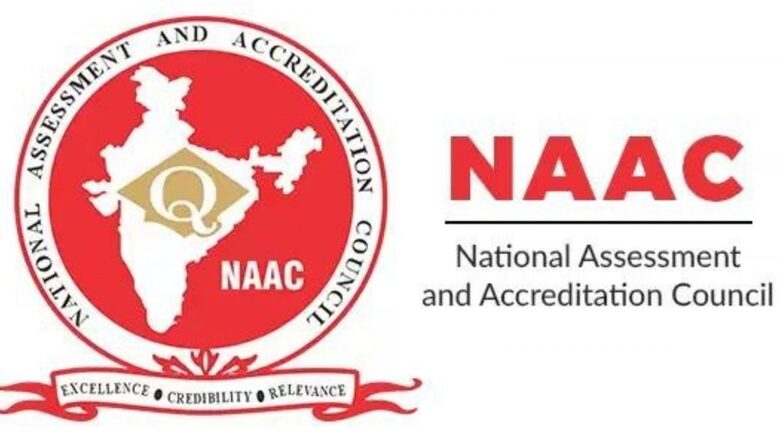
views
A binary and multi-level accreditation system instead of grades, an outcome-based approach rather than input-centric process, categorisation of institutions instead of a one-size-fits-all model, and transparency of data sets through ‘One Nation One Data’ platform — these are among the major reforms to be implemented by the National Assessment and Accreditation Council (NAAC) while grading colleges and universities in the country, according to the final report released by the Ministry of Education (MoE) on Saturday.
The Ministry released the final version of the ‘Reforms for Strengthening Assessment and Accreditation in Higher Education Institutions’ (HIE) report on Saturday. The draft was put in public domain in May 2023 for public feedback.
The finalised report was submitted to Union Minister of Education Dharmendra Pradhan this year, which he accepted on January 16.
THE RECOMMENDATIONS
The report recommends a binary accreditation (either accredited or not accredited) system rather than grades to encourage all institutions to get on-boarded in the accreditation process, thereby creating a quality culture in the higher education system.
The reforms also include a maturity-based graded accreditation, which means multiple levels of grading — level 1-5 — to encourage accredited institutions to raise their bar, continuously improve, evolve in-depth or in-breadth in disciplines from ‘Level 1’ to ‘Level 4’ as Institutions of National Excellence, and then to ‘Level-5’ i.e. Institutions of Global Excellence for Multi-Disciplinary Research and Education.
THE IMPLEMENTATION
The reforms recommended in the final report will be implemented by the NAAC in two stages — binary system in the next four months and maturity-based (multi-level) system from December 2024 — as decided by the executive committee of NAAC in its 104th meeting on January 27.
“In the first stage, the binary accreditation will be implemented in the next four months and no new applications will be accepted as per the present methodology thereafter. Institutions that have already applied and are applying in the next four months shall have the option to either go by the present process or by the new methodology,” the report said.
The Maturity-based Graded levels will be implemented by December 2024.
The report was prepared by an overarching committee led by K Radhakrishnan, former Chairman of ISRO and chairperson, Standing Committee of IIT Council in November 2022 to propose transformative reforms for strengthening Assessment and Accreditation of higher education institutions in India.
The committee was set up to propose reforms after several irregularities were found in the accreditation system.
“The leveled accreditation shall enable Indian institutions to significantly improve their quality and position themselves among global top institutions,” the report read.
The panel recommends that the metrics for both binary and multi-level graded accreditation will focus on processes, outcomes and impact, instead of merely being an input-centric exercise.
Also, it said, the new process will take into consideration the ‘heterogeneity’ of HEIs in the country and categorise them based on orientation, heritage, legacy , among other attributes instead of a ‘one-size fits all’ model.
The panel also recommends a special focus on institutions located in rural and remote areas.
‘ONE NATION ONE DATA’
News18 has earlier this month reported that the ministry has been working on the ‘One Nation One Data’ platform to ensure authenticity of data through seeking validation from different sets of stakeholders.
“The new platform will capture superset of data from HEIs for the varied purposes (of approval, accreditation, ranking) with an in-built design for collateral cross-checking to check authenticity of data,” the ministry said in a statement.
In addition, it said, to improve the validity and reliability of the data “Stakeholder validation” has been proposed to effectively integrate stakeholders as part of the accreditation and ranking process. The system shall be based on Trust and Data Driven with minimal visits to an institution for verification; however, carrying heavy penalties for any wrong data submissions by the institutions.
Besides, there will be provision for customised ranking based on stakeholders such as industry, funding agencies, students etc.
The reforms have been proposed with a strategic intent to be consistent with the Vision of NEP 2020, adopt a simple, trust-based, credible, objective and rationalized system for approval, accreditation and ranking of HEIs, with a technology-driven modern system that could replace or minimise manual involvement to make the accreditation process transparent and integrate the inputs of the stakeholders.




















Comments
0 comment